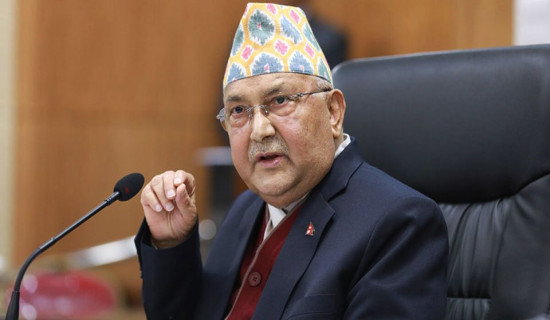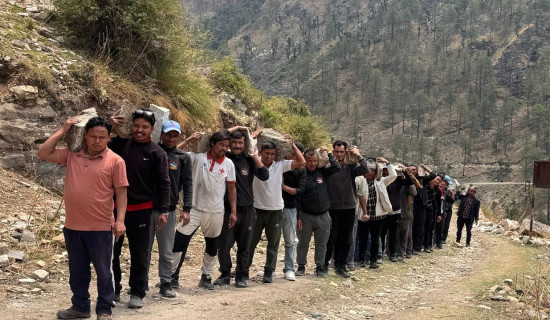- Thursday, 26 June 2025
Microfinance Solution
Nepal is one of the first countries in South Asia to start microfinance services by introducing microfinance institutions (MFIs) as a means to provide credit access to those who have no access to mainstream financial institutions. MFIs were originally seen as solutions for lifting grassroots people out of poverty by offering loans, facilitating savings and providing insurance options to the disadvantaged groups. After three decades of operation, MFIs, instead of bringing substantial changes in people's lives, have emerged as new loan sharks, and have arguably drifted away from the very idea of MFIs.
Microfinance reached places and people not covered by mainstream banks. They had lower interest rates and aimed to end poverty. Lately, however, we are witnessing the demonstrations by the loan shark victims, cooperative victims and microfinance victims. They have been staging protests for a long time, demanding that the amounts they owe be written off. Some agitating victims broke into the Federal Parliament despite tight security. They wanted to bring the issue to the notice of the government. This calls for a logical solution to the problem so that it the nation’s financial situation does not get out of control.
The government and the agitating microfinance victims the other day inked a six-point agreement to solve the problems faced by the victims. Both sides have agreed on the effective implementation of the rules and directives issued by Nepal Rastra Bank (NRB), the central bank of the nation. The NRB will strongly enforce the provision that states the MFIs cannot charge interest rates higher than the ones stated by NRB while approving the loans. The NRB directive states that MFIs cannot charge interest rate of over 15 per cent a year. But the MFIs can add on 1.5 per cent in the name of service charge.
The concerned victims have been complaining that exorbitant and unacceptable interest rate was being imposed on them. This, they say, amounts to injustice. At a time when the government has put social justice in the key objective of public delivery, it now becomes pertinent to address this issue to ensure that fair rules apply. It becomes evident that the MFIs are in need of more effective regulation. Citizens already hard hit by the negative impacts of the COVID-19 pandemic and the resultant state of economic difficulties are seen taking loans from microfinance institutions which has made them unable to pay back the loans.
The directive issued by NRB on February 22 restricted more than one MFI from lending to the same person. Although MFIs were established to promote rural people's access to finance, the motive of earning more profits from the interest rates has started surpassing the interest rates of the commercial banks. Timely reforms and effective implementation of the existing policies are called for and the MFIs that do not comply with the legal and policy provisions and the instructions of the central bank should face legal action.
The six-point agreement should enable to find a long-term solution to the problem. In this regard, the government has formed a seven member panel to study and identify the problems related to the microfinance and recommend viable solution. Some policy-level reforms and regulations are mandatory if the government seeks a win-win solution.

















